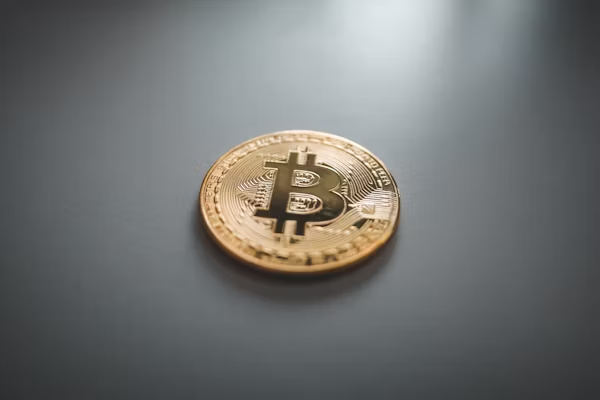ARTICLE AD BOX

- Global competition for Bitcoin is intensifying, with governments and corporations seeking to secure limited Bitcoin supplies.
- Favorable economic conditions, rising institutional interest, and BTC’s four-year cycle could drive significant market gains.
Popular crypto influencer Lark Davis presents a strong argument in his recent video for why Bitcoin (BTC) might hit historically ATH by 2025, at $200k.
Davis contends that the environment is prepared for a possible large increase in value since government attention, company adoption, and global economic conditions all point to Bitcoin’s advantage.
From the potential for a U.S. strategic Bitcoin reserve to the continuous “global game theory” struggle among countries, he emphasizes seven main elements influencing this perspective. Here is a closer view of the reasons Davis thinks a perfect storm is developing for the future of the coin.
U.S. Moves Toward a Strategic Bitcoin Reserve
Lark Davis starts his talk with great potential: the United States could build a strategic Bitcoin reserve. Proposed by Senator Cynthia Lumis is acquiring one million BTC over five years, or about 500 BTC daily, as we previously noted.
With just roughly 1.5 million Bitcoin left to be mined, a U.S. purchase strategy of this scope may generate demand sky-high and most likely cause a notable price increase.
Beyond the plan, Davis notes that numerous U.S. officials—including JD Vance and Robert F. Kennedy Jr.—support Bitcoin. Whether the United States begins acquiring Bitcoin or only keeps present reserves, the national debate on a Bitcoin reserve marks a change in official interest toward cryptocurrency.
Global Game Theory
The U.S. would not be the only one running for BTC accumulation. Davis emphasizes that mining and acquisition of Bitcoin are already in progress in other countries.
While small governments like Bhutan have discreetly been mining Bitcoin and building significant reserves, others like El Salvador have approved the medium of transaction. Bigger countries, notably Russia, are also adopting cryptocurrency and establishing rules controlling Bitcoin mining.
Referring to this worldwide interaction with BTC as “global game theory,” Davis’s analysis implies that more nations—especially as the supply runs low—may scramble to secure Bitcoin holdings. This race among nation-states to grab Bitcoin could boost demand even more and influence the price higher.
Corporate Giants Eye BTC as a Strategic Investment
The third factor guiding Davis’s prediction is the possible impact of companies, especially tech giants like Microsoft. Microsoft recently polled its shareholders to talk about Bitcoin investing, as we previously reported.
As Davis points out, in an inflationary atmosphere, carrying large amounts of cash can be dangerous, so tech businesses could turn to BTC as a store of value.
Should Microsoft or other giants like Facebook and Apple choose to invest in BTC, it might trigger a tsunami of institutional buying, hence driving up the value of Bitcoin.
Davis further emphasizes Tesla’s present Bitcoin holdings and cites MicroStrategy CEO Michael Saylor’s declaration that his business intends to purchase $42 billion worth of BTC, hence generating ongoing market buying pressure.
Bitcoin ETFs Drive Unprecedented Institutional Demand
According to Davis, demand for recent Bitcoin ETF introductions has been unheard-of. Over $1.4 billion was spent in one day, roughly equal to forty days of Bitcoin mining output.
This shows the enormous influence Wall Street might have on the price path of Bitcoin using these fresh investing platforms. Given almost $25 billion in positive inflows for Bitcoin ETFs this year, institutional demand for BTC is obviously growing.
Retail Investors Flock to BTC as Interest Surges
Another sign of a possible price climb is retail curiosity in Bitcoin. Davis notes that apps for trading cryptocurrencies are becoming more and more popular; Coinbase and Crypto.com have seen notable increases in their app rankings.
Rising interest drives prices higher, and when ordinary investors get more active, it usually marks the later phases of a bull market.
“Number go up technology,” as Davis says, appeals to most investors. Rising prices of the coin attract greater attention, and as it keeps setting new highs, more individual investors join the market, therefore generating more buying demand.
Global Interest Rate Cuts and Liquidity Boost Favor The Coin
According to Davis, the lowering of world interest rates serves as even another driver of a Bitcoin price explosion. Both the United States and the United Kingdom have lately lowered rates, therefore encouraging investment and making borrowing less expensive.
Davis contends that as interest rates fall, money gets less expensive and people and businesses could go for riskier assets, like Bitcoin, for better returns.
China has also revealed a $1.4 trillion stimulus plan, which Davis notes will provide extra liquidity for world markets. As money moves into financial markets and liquidity rises, Bitcoin may see more demand as investors hunt better returns.
4-Year Cycle Points to Potential 2025 Peak
Finally, Davis talks on the well-known 4-year cycle of Bitcoin, which is intimately related to events of halving. After every Bitcoin halves, roughly six months later, Bitcoin has often surged to fresh heights.
Based on this trend, Davis speculates that BTC would peak 12 to 18 months following the most recent halving, therefore positioning its probable peak between April and November 2025.
He observes that the four-year cycle of BTC has always followed this trend regularly in the past. Davis expects the coin to follow this path, maybe reaching his anticipated $200,000 target, since the present cycle exactly matches prior performance.
.png)
 1 week ago
1
1 week ago
1








 English (US)
English (US)